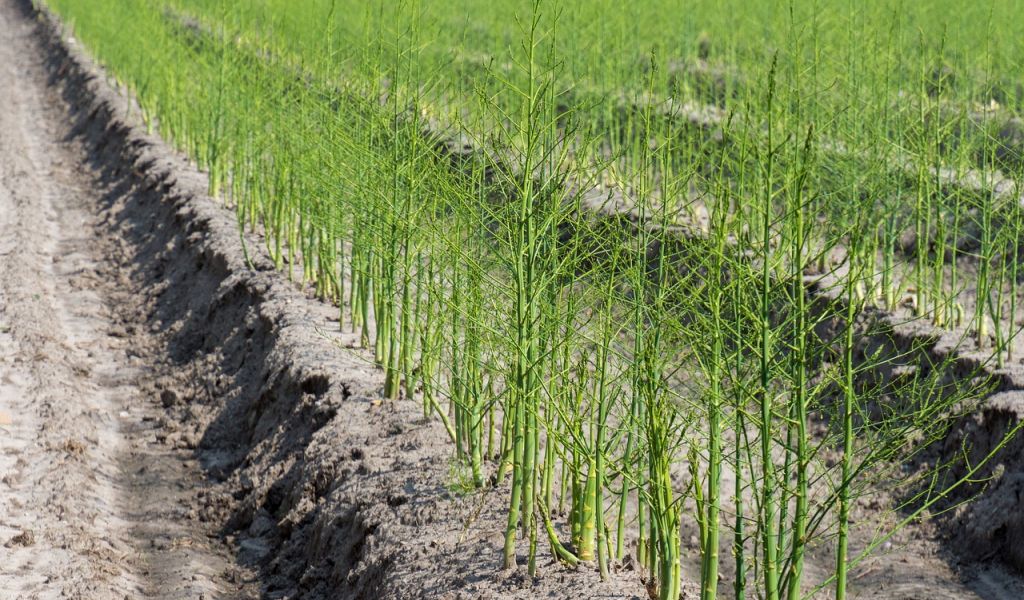Asparagus cultivation to bring economic stability to villagers

The Korea International Cooperation Agency (KOICA) and Myongji College in South Korea have set up a project with asparagus in Vientiane to boost economic development in local communities. They planted asparagus on eight hectares in both Na Nga village (Naxaithong district) and Paksab Kao village (Xaythany district). There are plans to establish asparagus farms elsewhere in Laos as well.
The project intends to pass on useful knowledge to local people in order to let them carry on the work by themselves in the future. This way, the local people can learn the special techniques needed from project experts. Also, the project has used proper cultivation methods and brought in villagers to work under the scheme and learn how to manage farms. Mr. Lenin Leuangdavanh, technical manager in Paksab Kao village, explains that the project has provided land to grow asparagus on and the necessary utilities like electricity and water. Besides, the project monitors the farm to make sure the farmers follow the correct steps in managing the crops. Especially when the asparagus plants sprout roots, it is important for the farmers to get up early every day to collect these roots. The harvested crops will be exported to markets in South Korea.
Prof. Young Hyun Yoon, project manager from Myongji College, has told that the project is a collaboration between Korean people and Lao farmers. This, because it could serve as a demonstration project for Lao farmers to increase their income and for Koreans to receive good quality vegetables. KOICA and Myongji College are working together in order to accommodate a variety of facilities like asparagus seeds, fertiliser and the above mentioned water and electricity to the Lao farmers. They arrange all this for those who want to earn an income from asparagus but do not have the capital to get started.
As part of the project, KOICA and Myongji College have also provided Na Nga village with electricity and built wells to improve the lives of the residents. Additionally, medical services have been offered to more than 1,800 people in several villages and an elementary school has been opened in Xenamnoy village. This all to build a good relationship between farmers in Laos and consumers in Korea.
The project wants to expand to 14 hectares of asparagus farms in various parts of Laos by 2020 and also aims to export the crops to other Asean countries like Singapore and Taiwan.
Information source: Vientiane Times.
